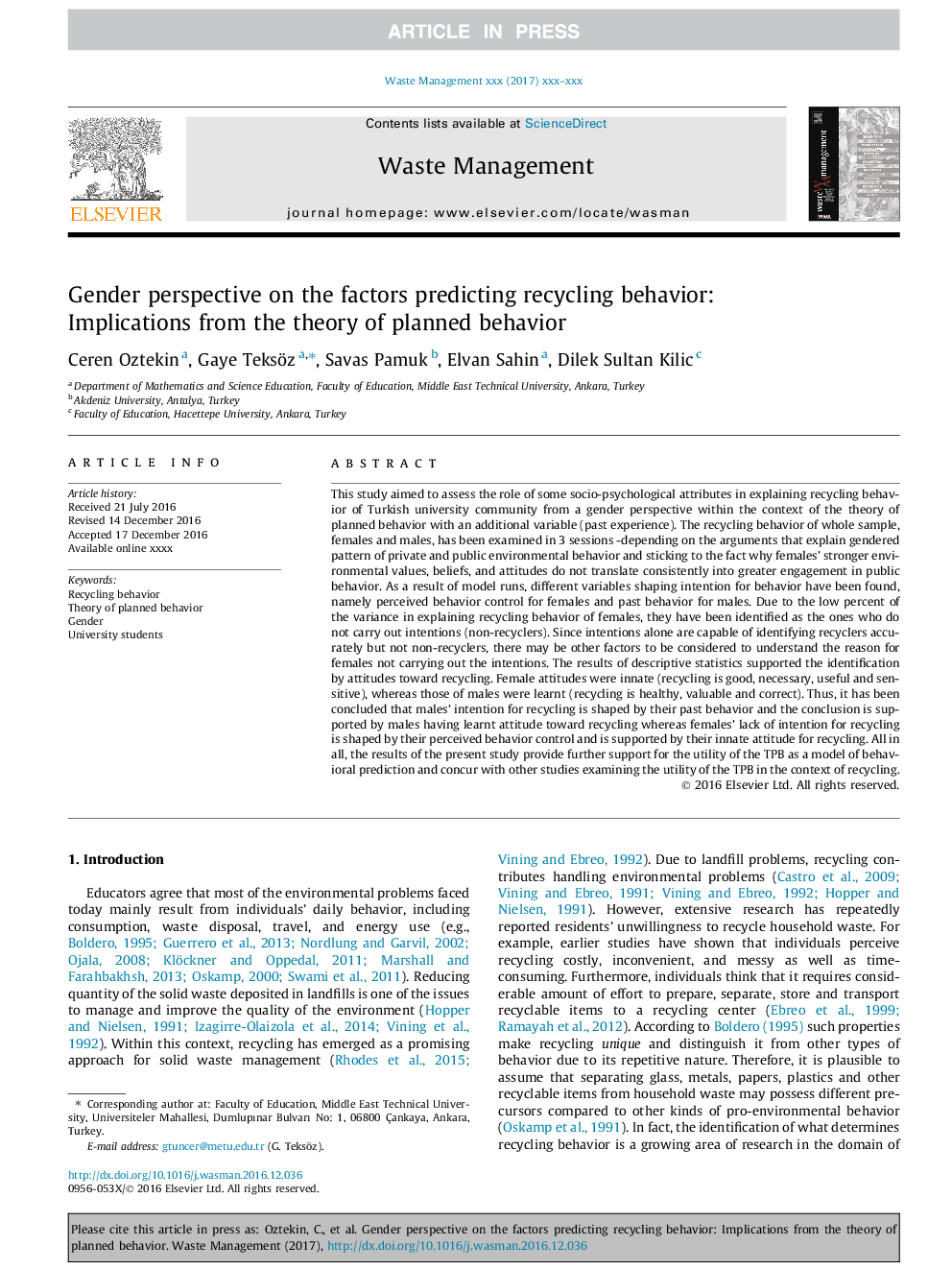ترجمه فارسی عنوان مقاله
دیدگاه جنسیتی در مورد عوامل پیش بینی رفتار بازیافت: پیامدهای تئوری رفتار برنامه ریزی شده
عنوان انگلیسی
Gender perspective on the factors predicting recycling behavior: Implications from the theory of planned behavior
| کد مقاله | سال انتشار | تعداد صفحات مقاله انگلیسی |
|---|---|---|
| 142367 | 2017 | 13 صفحه PDF |
منبع

Publisher : Elsevier - Science Direct (الزویر - ساینس دایرکت)
Journal : Waste Management, Volume 62, April 2017, Pages 290-302
ترجمه کلمات کلیدی
رفتار بازیافتی، نظریه رفتار برنامه ریزی شده، جنسیت، دانشجویان دانشگاه،
کلمات کلیدی انگلیسی
Recycling behavior; Theory of planned behavior; Gender; University students;

